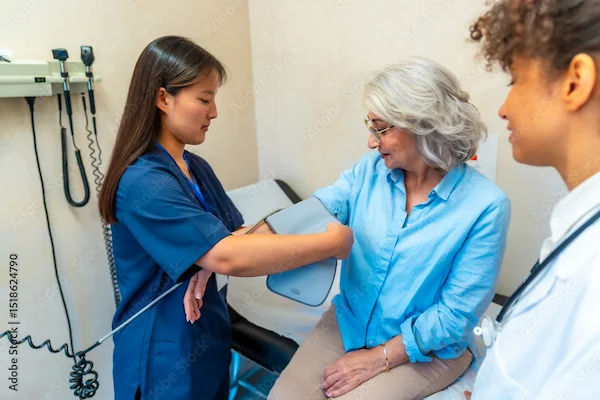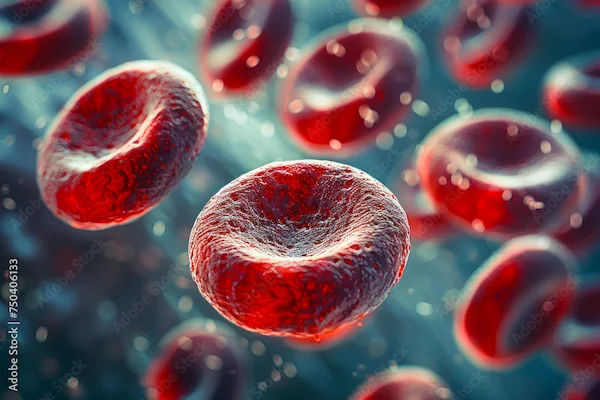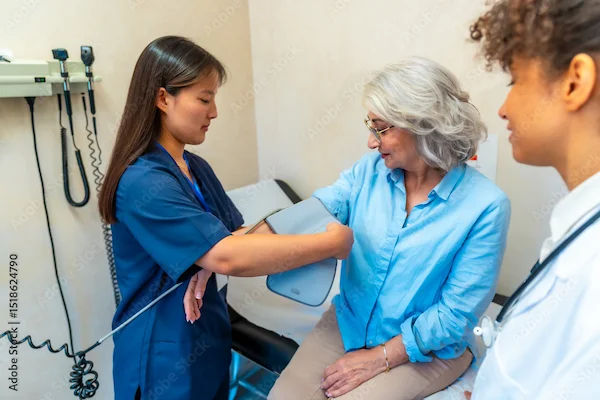Understanding Lymphoma Stages and Expectations
Learn about the stages of lymphoma, how they are diagnosed, and what to expect at each stage. Gain insights into treatment options and prognosis to better navigate your care journey.

Written by Dr. Nallapu Siri
Last updated on 20th Aug, 2025
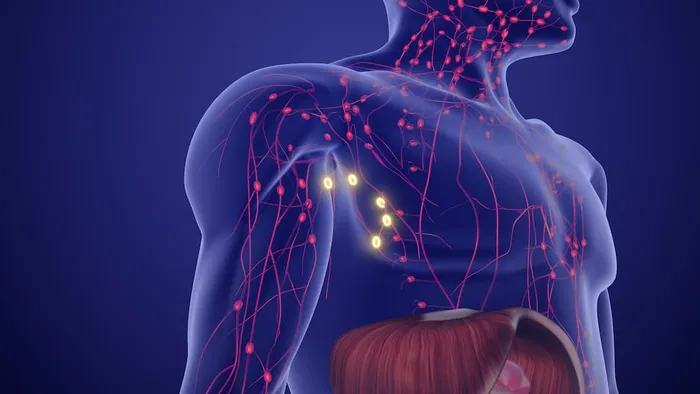
Lymphoma is a type of cancer that affects the lymphatic system, which is a vital part of the body’s immune system. If you or a loved one has been diagnosed with lymphoma, understanding its stages can help you make informed decisions about treatment and what to expect.
This article will explain lymphoma stages in simple terms, how they affect treatment options, and what you can do to manage the condition effectively.
What is Lymphoma?
Lymphoma occurs when white blood cells called lymphocytes grow abnormally, forming tumours in lymph nodes or other parts of the body. There are two main types:
1. Hodgkin Lymphoma (HL): Less common but highly treatable.
2. Non-Hodgkin Lymphoma (NHL): More common, with many subtypes.
Both types are staged similarly to determine how far the cancer has spread.
Why is Staging Important?
Staging helps doctors:
- Determine how advanced the cancer is.
- Choose the best treatment plan.
- Predict the likely outcome (prognosis).
The stage is based on factors like:
- The number of lymph nodes affected.
- Whether the cancer has spread to other organs.
The presence of symptoms like fever or weight loss.
The Four Stages of Lymphoma
Lymphoma is divided into four stages (I to IV), with higher numbers indicating more widespread disease.
Stage I (Early Stage)- Description: Cancer is found in one lymph node region or a single organ outside the lymph system.
- Example: Only the lymph nodes in the neck are affected.
Treatment: Often treated with radiation or a short course of chemotherapy.
Stage II (Locally Advanced)
- Description: Cancer is in two or more lymph node regions on the same side of the diaphragm (either above or below it).
- Example: Lymph nodes in the neck and armpit are affected.
Treatment: Usually requires chemotherapy, sometimes combined with radiation.
Stage III (Advanced)
- Description: Cancer is found in lymph nodes on both sides of the diaphragm (above and below).
- Example: Lymph nodes in the neck and groin are affected.
Treatment: Stronger chemotherapy or immunotherapy is often needed.
Stage IV (Widespread)- Description: Cancer has spread beyond lymph nodes to organs like the liver, lungs, or bone marrow.
- Example: Lymphoma cells are found in the bone marrow.
Treatment: Aggressive chemotherapy, immunotherapy, or stem cell transplant may be required.
Additional Staging Factors
Doctors also consider:
- A or B Symptoms:
- A: No symptoms like fever, night sweats, or weight loss.
- B: Presence of these symptoms, which may indicate a more aggressive disease.
- Bulky Disease: Large tumours (usually more than 10 cm) may need more intensive treatment.
What to Expect After Diagnosis?
1. Diagnostic Tests
To determine the stage, doctors may recommend:
- Biopsy (removing a small tissue sample).
- Imaging tests (CT, PET, or MRI scans).
- Blood tests and bone marrow biopsy (for Stage IV).
2. Treatment Options
Treatment depends on the type and stage of lymphoma but may include:
- Chemotherapy (drugs to kill cancer cells).
- Radiation therapy (targeted high-energy beams).
- Immunotherapy (boosts the immune system to fight cancer).
- Stem cell transplant (for aggressive or recurring cases).
3. Side Effects & Management
Common side effects of treatment include fatigue, nausea, and low immunity. Tips to manage them:
- Eat small, frequent meals to combat nausea.
- Stay active (light exercise helps with fatigue).
- Follow hygiene practices to avoid infections.
4. Follow-Up Care
Regular check-ups are crucial to monitor recovery and detect any recurrence early.
Lifestyle Tips for Lymphoma Patients
While medical treatment is essential, lifestyle changes can support recovery:
- Eat a balanced diet (rich in fruits, vegetables, and lean proteins).
- Stay hydrated to help flush out toxins.
- Exercise moderately (walking, yoga) to boost energy.
- Manage stress through meditation or counselling.
Avoid smoking and alcohol, as they can weaken immunity.
When to Seek Help?
If you experience:
- Unexplained weight loss or fever.
- Swollen lymph nodes that don’t go away.
- Persistent fatigue or night sweats.
Consult a doctor immediately. Early detection improves treatment success.
How Apollo 24|7 Can Help?
If you suspect lymphoma symptoms or need a second opinion, Apollo24|7 offers:
- Expert oncologist consultations (online or in-person).
- Advanced diagnostic tests (blood work, imaging, biopsies).
- Personalised treatment plans for lymphoma patients.
Book a consultation or schedule a test today through the Apollo24|7 app for timely and expert care.
Conclusion
A lymphoma diagnosis can be overwhelming, but understanding its stages and treatment options empowers you to take control of your health. With advancements in medicine, many lymphoma patients lead healthy lives after treatment.
Stay informed, follow your doctor’s advice, and maintain a positive outlook—you are not alone in this journey.
Consult Top Specialists
Consult Top Specialists

Dr. Sandhya Chandel
General Physician/ Internal Medicine Specialist
16 Years • MBBS, MD (Int. Med.), IDCCM
Bilaspur
Apollo Hospitals Seepat Road, Bilaspur
(100+ Patients)

Dr. Mohamed Azeem
General Physician/ Internal Medicine Specialist
2 Years • MBBS,MD(Internal Medicine) CCEBDM
Karaikudi
Apollo Hospitals Karaikudi, Karaikudi

Dr. Swarna Deepak K
General Physician/ Internal Medicine Specialist
17 Years • MBBS: MD (Internal Medicine) MRCP (UK), EDIC (European Diploma in Critical Care), IDCCM, IFCCM (Critical Care), FID (Royal Liverpool Academy)
Hyderabad
Apollo Hospitals Jubilee Hills, Hyderabad
(375+ Patients)
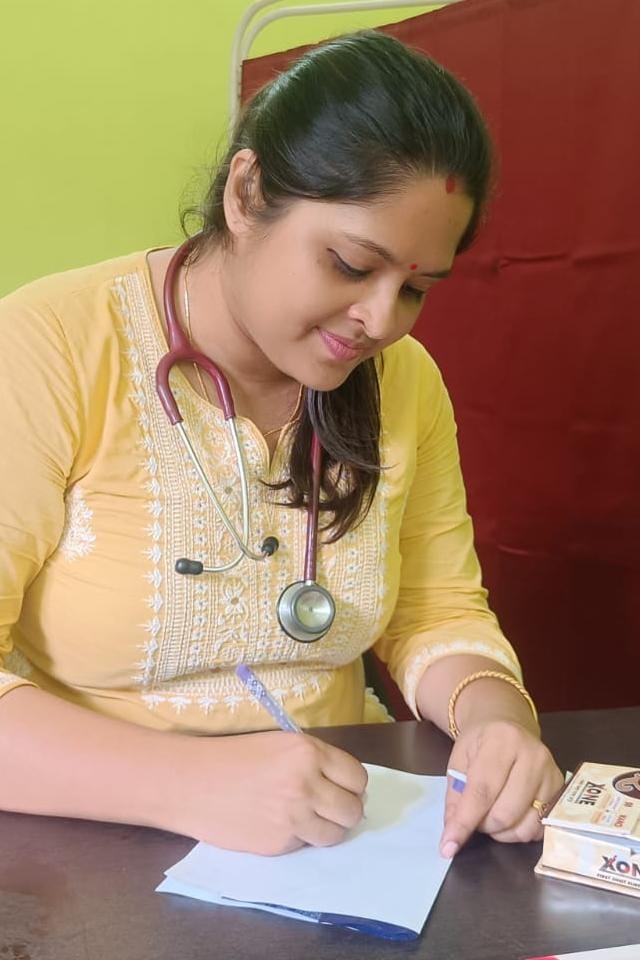
Dr. Swagata Sircar
General Physician/ Internal Medicine Specialist
8 Years • MBBS, MD General Medicine
Kolkata
HealthYou Speciality Clinic & Diagnostics., Kolkata
(50+ Patients)

Dr. Gunashree V L
General Physician/ Internal Medicine Specialist
3 Years • MBBS
Bengaluru
Apollo Clinic, JP nagar, Bengaluru
